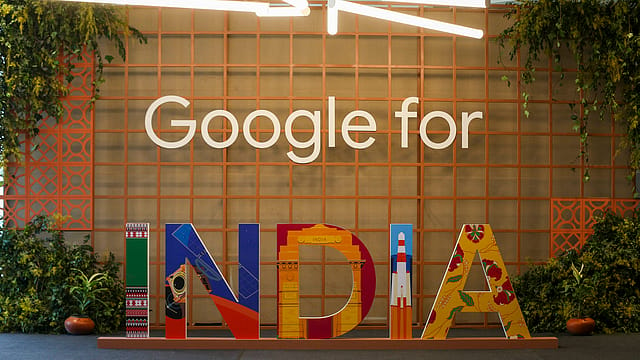Google says non-compliant Indian apps can be removed from Play Store
ADVERTISEMENT

Google on Friday said it is taking "necessary steps" to ensure Play Store policies are applied consistently across the Indian app ecosystem.
10 Indian companies, including many well-established ones, have chosen to not pay for the value they receive on Google Play by securing interim protections from court, the tech behemoth says, claiming that these developers comply with payment policies of other app stores.
While some of the developers that were refused interim protection by the Supreme Court have started fairly participating in our business model and ecosystem, others choose to find ways to not do so, the Alphabet-owned search giant says.
Google says allowing this small group of developers to get differential treatment from the vast majority of developers who are paying their fair share creates an uneven playing field across the ecosystem and puts all other apps and games at a competitive disadvantage.
Google Play charges a service fee when developers sell in-app digital goods. The tech giant says its tiered pricing programmes benefit Indian developers as only 3% of developers in India sell digital goods or services and therefore need to pay a service fee, the vast majority of whom pay 15% or less – the lowest of any major global app store. Less than 60 developers in India are subject to fees above 15%, it says.
"After giving these developers more than three years to prepare, including three weeks after the Supreme Court's order, we are taking necessary steps to ensure our policies are applied consistently across the ecosystem, as we do for any form of policy violation globally," the Mountain View, California-based tech giant says.
"Enforcement of our policy, when necessary, can include removal of non-compliant apps from Google Play," it warns.
Google, however, says developers are welcome to resubmit their apps to be listed on Play Store by selecting any one of the three billing options as part of its payments policy: Operate on a consumption-only basis without paying a service fee, even if it is part of a paid service; Integrate Google Play’s billing system and; Offer an alternative billing system alongside Google Play’s for users in India.
"In the meantime, these developers continue to have other options to operate their business on Android, including distribution through alternative Android app stores or directly via their websites. Existing users will be able to continue to access the apps without interruption — and we continue to offer our support to help developers get into compliance," says Google.
This comes when there is a growing clamour among the Indian start-up ecosystem for more free market competition in the mobile app store space. Last month, fintech startup PhonePe launched Indus Appstore for Android users. PhonePe said its app store aims to create a more competitive and localised mobile app store economy for India—the world's largest mobile app download market. Indus is offering zero listing fees to developers for the first year.
App stores like Google Play Store and Apple App Store make money from the commissions they charge on each app's sales and in-app purchases.
Developers are desperate for an alternative, said Sameer Nigam, founder and CEO, PhonePe. "A billion people cannot be told that the way you will discover new apps in a new-age economy," he said.